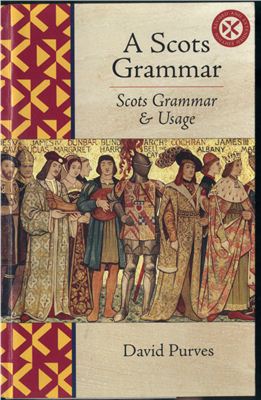Saltire Society, 2002. - 160 pages. English/Scottish
Purves presents Scots as a separate language in its own right, resisting the often prevalent notion that Scots is merely a dialect of English, and gives a coherent overview of the distinctive grammatical and idiomatic usage of Scots.
In this revised and extended edition of his controversial study, David Purves argues that Scots' lack of prestige is a direct consequence of Scotland's loss of political and economic independence. As the Scots language has always been closely related to English, the political union made it possible to represent Scots as no more than an incorrect or corrupt dialect, rather than the language of a whole people, with a special character of its own. This unique handbook demonstrates the grammatical and idiomatic features of Scots, quoting examples from literature, proverbs, songs and colloquial speech to provide an invaluable resource for teachers and students of our linguistic heritage, in the hope that speakers will gather confidence and bring the language into serious use for the people of Scotland in this new millennium. The author applies the principles of the Scots Language Society Recommendations for Writers in Scots.
Purves presents Scots as a separate language in its own right, resisting the often prevalent notion that Scots is merely a dialect of English, and gives a coherent overview of the distinctive grammatical and idiomatic usage of Scots.
In this revised and extended edition of his controversial study, David Purves argues that Scots' lack of prestige is a direct consequence of Scotland's loss of political and economic independence. As the Scots language has always been closely related to English, the political union made it possible to represent Scots as no more than an incorrect or corrupt dialect, rather than the language of a whole people, with a special character of its own. This unique handbook demonstrates the grammatical and idiomatic features of Scots, quoting examples from literature, proverbs, songs and colloquial speech to provide an invaluable resource for teachers and students of our linguistic heritage, in the hope that speakers will gather confidence and bring the language into serious use for the people of Scotland in this new millennium. The author applies the principles of the Scots Language Society Recommendations for Writers in Scots.

